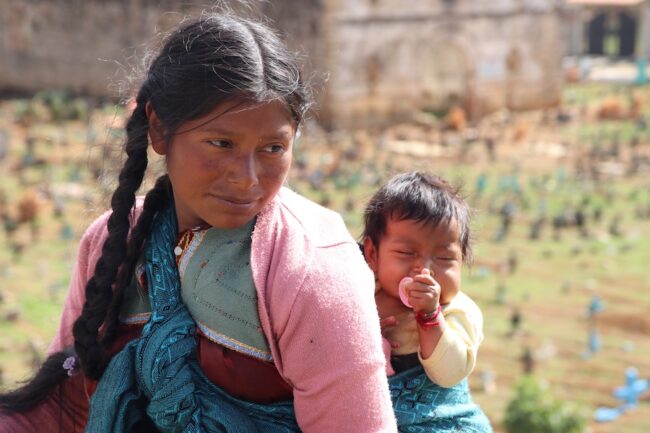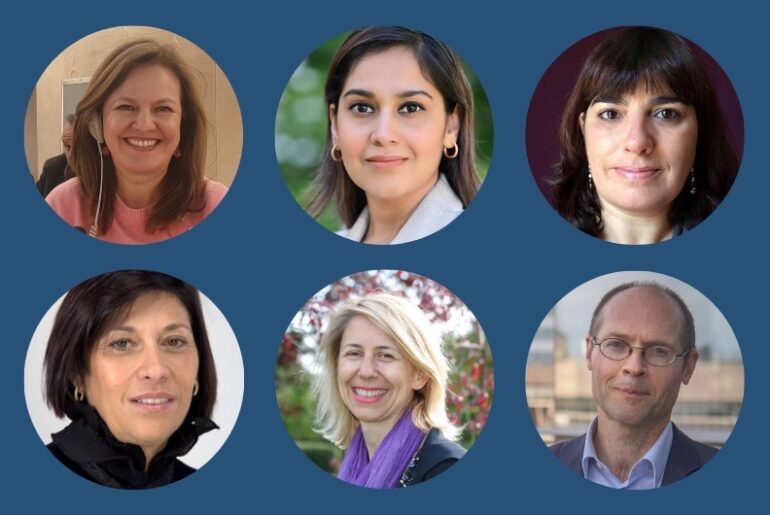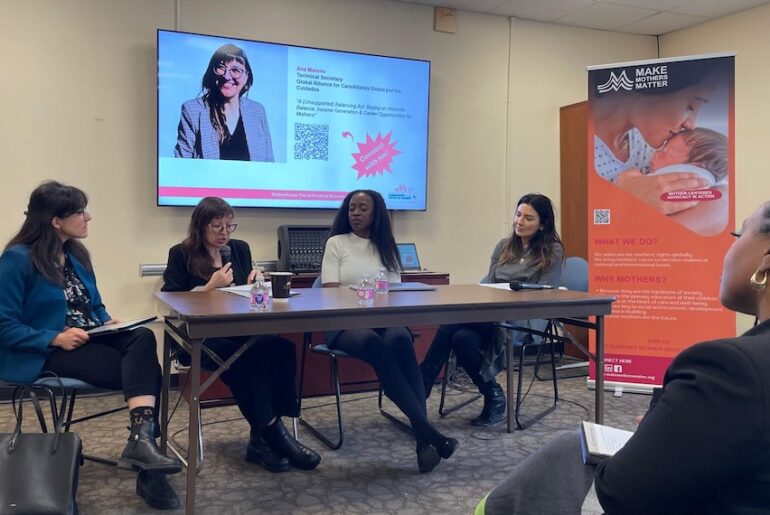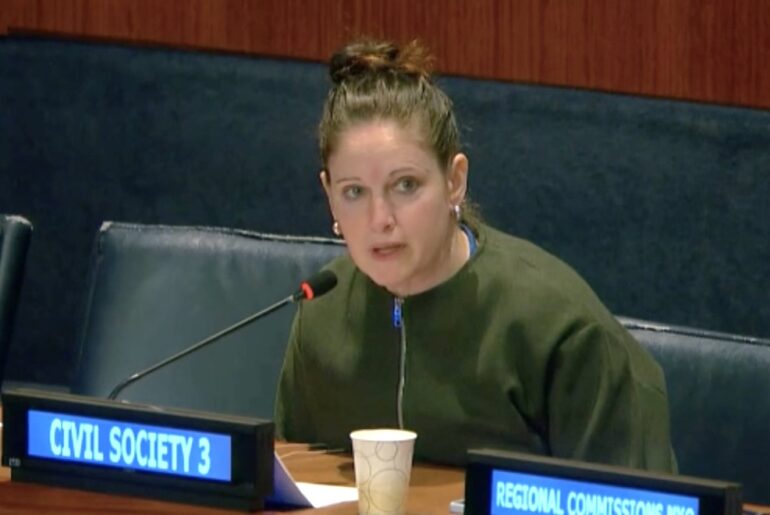Shouldn’t every mother have the right to social security?
28.11.21
UN Geneva, Human Rights Council – On the occasion of an intersessional panel discussion on ‘The right to social security in the changing world of work ‘, MMM reaffirmed the critical importance, relevance, and legitimacy of the right to social security for unpaid caregivers, especially mothers. We also stressed the need to change narratives around unpaid care work and social protection.

In her intervention, Shahra Razavi, Director of the Social protection department of the International Labour organisation (ILO), recalled that the right to social security is enshrined in the Universal Declaration of Human Rights, as well as the International Covenant on Economic, Social and Cultural Rights, which most member states have ratified. She also stressed that investing in social protection is necessary for development and that it pays off: it reduces poverty and inequality, and it expands people’s life choices. The impediments which are often put forward include financing and informal work, but these are policy choices and laws to change. Social protection could and should cover all types of workers.
We at MMM go even further and argue that the right to social security should also apply to unpaid caregivers, in particular mothers.
The Covid crisis has exposed how the inequitable distribution of care responsibilities is a source of economic injustice for women, and the challenges that most mothers and other unpaid caregivers face in trying to juggle care with paid work.
Investing in Care and supporting women, parents and other caregivers doing the essential yet unpaid and mostly invisible work must be at the heart of a new social contract.
As part of such a contract, unpaid care work must be recognized as work, essential work, which sustains the economy and benefits society as a whole. It must therefore be recognized as being our collective responsibility.
This means that every unpaid caregiver should have access to social security just like any other worker. In particular, every mother should have access to income security, healthcare, pension rights and full maternity protection.
Social protection must also be considered as an investment, not as an expense to be minimized. Supporting caregivers, parents especially, through adequate public services AND social protection is investing in people and families. Ultimately it is also about investing in children that brings high returns, especially for vulnerable families.
To summarize, the pandemic provides a unique opportunity for systemic changes and a new social contract, and this begins by changing narratives:
- Unpaid family care work IS work, essential work
- Supporting this unpaid care work through social protection is both our collective responsibility and an investment
- The right to social security must therefore be part of a new social contract – where care and education are central
The HRC Intersessional panel discussion of the Human Rights Council on the right to social security in the changing world of work took place on 1st November 2021. With its oral statement, MMM contributed to Panel 4: the right to social security at the heart of the new social contract.
The report of this intersessional panel, which features MMM intervention, was presented at the 49th session of the Human Rights Council.
Mothers, unpaid care work and global crises – connecting the dots
02.07.24
UN New York / HLPF - Register now to join us online at this year’s High Level Political Forum side-event.
Time Poverty and the Motherhood Penalty
Unveiling Economic and Social Injustices
09.07.24
Mothers play an essential role in families by ensuring their loved ones are nourished, educated, and healthy, but their unpaid care work often leads to economic and social injustices, known
Envisioning care as a common thread to global crises
29.07.24
UN New York - Our virtual HLPF side-event brought together experts to shed light on how the various global crises we face (in particular climate change and other environmental crises,








